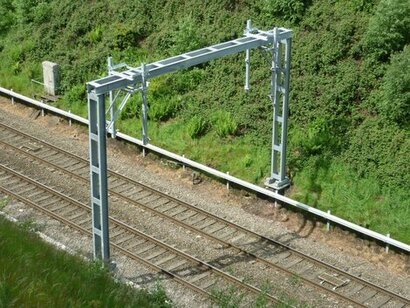
The statistical release shows that in 2020-21, 179 track kilometres were electrified, less than half the 448 kilometres required each year to meet Network Rail’s target of a Net Zero railway by 2050.
“New data published today shows that the UK electrified some 179 track kilometres in 2020-21, mostly on completing the Midland Mainline upgrade between Bedford and Corby” said David Clarke, Technical Director of the Railway Industry Association (RIA), who authored the Electrification Cost Challenge Report in 2019. “Yet, according to Network Rail’s Decarbonisation Strategy, we need to deliver 13,000 kilometres of electrification by 2050, meaning we need to be electrifying around 400 kilometres a year, more than double the rate we’re currently doing. And what’s more, with no major schemes coming down the line, we can reasonably expect that there will be less work, not more, in the coming year.
The Railway Industry Association has long called for a sustainable, cost-effective programme of electrification, alongside support for battery and hydrogen powered trains, in order to meet the Government’s Net Zero target by 2050 - an approach which was endorsed in the Government’s Transport Decarbonisation Plan in July. Yet, at the current rate, we are unlikely to meet that target. Crucially, the industry is also losing expertise and capabilities whilst schemes are stalled, meaning it will be harder to deliver the considerable amount of work needed if and when new projects are started. We need to get a programme of electrification work underway today, so we can decarbonise the network, bring greater benefits to passengers and freight user, and support the UK economy as we look to ‘build back better’.”
For additional information:

